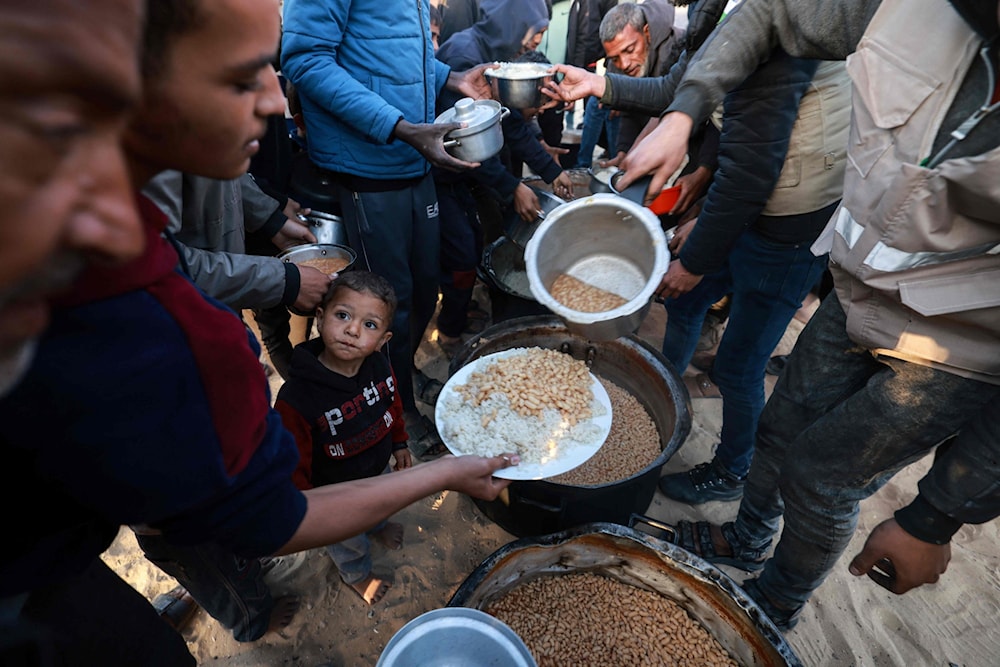Sea aid delivery falls way short of starved population's needs: Gov.
The director of Gaza's Government Media Office says that the ship's cargo does not exceed that of one or two trucks and would require days to arrive in the Strip.
-

Palestinians displaced by the Israeli occupation entity collect scarce food donated by a charity in Rafah, southern Gaza Strip, on March 11, 2024 (AFP)
The Government Media Office in Gaza has stated that the aid planned to be delivered from Cyprus via the maritime route will only cover a small fraction of the population's basic needs, as Palestinians in the Strip continue to suffer from "Israel's" inhumane starvation policy imposed through siege and blockade.
"According to what was announced, the ship's cargo does not exceed that of one or two trucks, and it will take days to arrive," said the government's Media Office Director Salama Marouf.
Read more: EU to open sea corridor for Gaza aid amid Palestinian doubt
He said some logistical questions about the operation were unanswered and raised concerns about Israeli inspections.
He expressed that there were unresolved logistical issues regarding the operation and voiced concerns about Israeli plans to "inspect" the aid, as the occupation entity had repeatedly used this measure as a pretext to delay aid delivery or block them entirely.
Read more: Gaza being starved, deprived of aid as displacement attempt: Euro-med
"It is still unknown where it will dock and how it will reach the shores of Gaza," Marouf said. "Moreover, it will be subject to inspection by the occupying army."
A ship carrying almost 200 tons of food for Gaza departed from a port in Cyprus on Tuesday as a trial to test the sea corridor operation.
The charity ship by Open Arms is expected to complete its 400km trip to Gaza's coast within a few days, where US charity World Central Kitchen said its Operation Safeena mission to establish a makeshift jetty is underway.
'Unbearable'
United Nations agencies pointed out earlier that maritime delivery is far less efficient than land deliveries, calling on relevant powers to prioritize opening land crossings over putting the main focus on supplies via ships.
Marouf voiced the same sentiment and called for international pressure on the Israeli occupation to allow aid trucks to pass into starved Gaza.
Last week, a UN expert warned that the Israeli occupation was destroying Gaza's food system as part of a larger "starvation campaign".
In a speech to the UN Human Rights Council, Michael Fakhri, UN Special Rapporteur on the Right to Food, asserted that the UN was "doing nothing" as "unbearable" images surfaced from Gaza.
The Health Ministry in Gaza revealed in its latest report that 27 Palestinians died so far due to malnutrition and dehydration, which was caused by "Israel's" starvation policy.

 3 Min Read
3 Min Read








